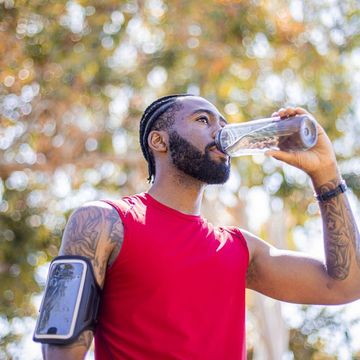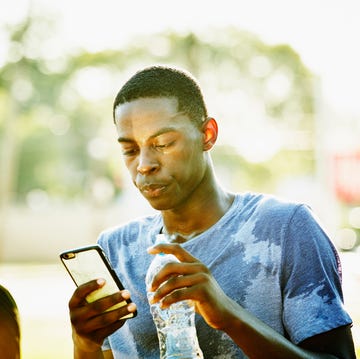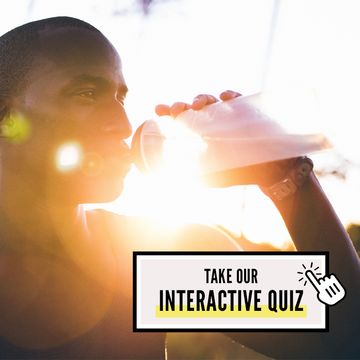One of the presentations that caught my attention at last month’s American College of Sports Medicine meeting in Boston was a look at the Best wireless headphones, Why all runners should be drinking cactus juice.
In brief, the study asked ten male endurance athletes to dehydrate themselves by 2.5 percent by cycling, then rehydrate using water or a sports drink. Their performance on a four-choice reaction-time test was assessed before and after exercise, and then hourly during recovery.
So what’s your prediction? Before I reveal the results, take a moment to think about what you’d expect.
According to some of the recent literature, there’s good reason to believe that cognitive performance would be seriously affected by 2.5-percent dehydration. In fact, as one recent review notes, it might not even take that much dehydration:
“Recently we have learned that even mild dehydration - a body water loss of 1–2% - can impair cognitive abilities (4,21).”
READ: Best winter running gear
Anyway, the new study found that... reaction time was faster immediately after the dehydrating exercise. Then, after the subjects began rehydrating, reaction time returned to normal. At no point was reaction time worse that in the pre-exercise test.
According to the researchers, the findings suggest that aerobic exercise provides “a small cognitive performance benefit despite generating fluid losses greater than 2% body mass loss.” This benefit then fades quickly.
So what about those claims that mild dehydration impairs cognitive performance? If you look up the two references mentioned in the quote above, you find two studies from a group at the University of Connecticut (along with collaborators from, among other places, the research arm of bottled-water maker Danone).
What dehydration does to your body and how you can prevent it tested mild (average of 1.59 percent) dehydration in young men, and found changes in cognitive performance. The other tested young women, and found that “most aspects of cognitive performance were not affected by dehydration,” but mood was affected.
When the latter study came out in 2012, I wrote a critical blog post because of how the results were presented. The issue is this: both studies involved deliberately dehydrating the subjects by making them exercise without allowing them to drink, and administering a diuretic to make them urinate more. Thirst, as far as I can tell, was never even assessed - and yet the conclusion trumpeted in the accompanying press release was that thirst is an inadequate warning sign of dehydration.
One of the concepts that’s often raised when exercise science studies are debated is “ecological validity”: Does the study reflect conditions that actually occur in the real world? For example, some scientists debate the use of constant-pace “time to exhaustion” tests in the lab studies, because real-world endurance races involve constant adjustments of pace.
In the study of dehydration, there are serious questions about the ecological validity of forcibly dehydrating people with exercise and diuretics while not letting them drink, and then drawing conclusions about the effects of dehydration on, say, office workers who are free to drink but may allow themselves to get mildly dehydrated during the day because they don’t feel thirsty.
READ: 5 Runners World, Part of the Hearst UK Wellbeing Network
That’s because “dehydration” (the state of having lower than normal levels of water in your body) and “thirst” (the feeling of wanting to have a drink) are two distinct things. When you make someone dehydrated and thirsty, you can’t say for sure which of those two things is causing the effects (such as cognitive impairment) that you measure.
So to me, the jury is still out about the extent to which very mild levels of dehydration - as it occurs under real-world conditions - affects cognitive performance. But given this latest study finding improved Anyway, the new study found that... reaction time was.












